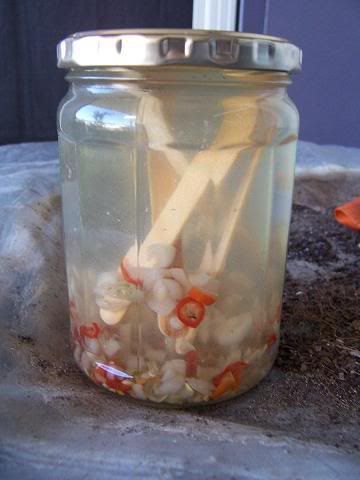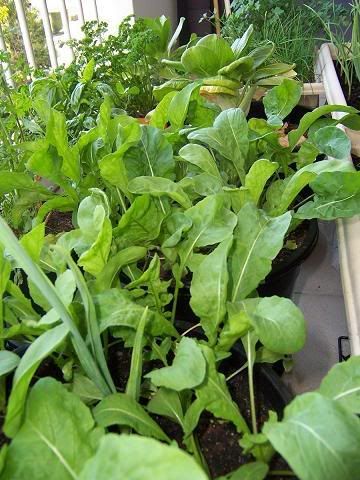Good story on the TV about this:
Presenter: Colin Campbell, 27/06/2009
SERIES 20 Episode 22
When insect pests invade your plants you've got to get on to the problem right away. Colin prefers to use home-made remedies where possible because they're generally safer for the environment and more economical. However he advises, "Be careful of these solutions around children, as they should not be ingested. Don't store them in soft drink bottles and make sure you keep them out of reach of children.
Scale and Mealybugs: Make an oil preparation that suffocates them by mixing four tablespoons of dishwashing liquid into one cup of vegetable oil. Mix one part of that mixture to about twenty parts of water, put it in your sprayer and spray the affected plants.
Aphids, Caterpillars and Other Insects: Add two tablespoons of soap flakes to one litre of water and stir thoroughly until completely dissolved (this is quicker in warm water). There is no need to dilute this further, just spray it on as is.
Black Spot Fungicide: In Queensland, Black Spot's a major problem with roses, but this fungicide mixture works miracles. Add three teaspoons of bicarb soda to one litre of water. Don't get carried away with the bicarb soda because if you make it too strong, it'll cause all sorts of problems. Add a few drops of either dishwashing liquid, or fish emulsion to help the solution adhere to the leaf more effectively.
Fungicide: Mix one level teaspoon of bicarb soda into one litre of water. Add one litre of skim milk and a pinch of Condy's Crystals which you can get from a produce agent (someone that supplies to horse owners). Shake thoroughly.
Grasshopper, Caterpillar, Possum and MIL Deterrent: Mix a cup of molasses into one litre of water and spray it over new foliage.
Nematodes: Add half a litre of molasses to two litres of water and spread over one and a half square metres of affected garden area.
All-round Insecticide: Chop four large onions, two cloves of garlic, and four hot chillies. Mix them together and cover with warm, soapy water and leave it to stand overnight. Strain off that liquid and add it to five litres of water to create an all-round insecticide.
Pesticide: Crush a whole bulb of garlic and cover with vegetable oil. After two days, strain off the liquid, add a couple of drops of dishwashing liquid and use one millilitre of concentrate to one litre of water.
Herbicide: Add a cup of common salt to a litre of vinegar. After it's dissolved, brush it directly onto weeds. Remember, it's not a selective weed killer. It'll kill anything it touches so be very careful how you use it.
Predator Attractor: Predators that prey on pests are great things to have in the garden. Lacewings are particularly desirable because they consume aphids and many other pests. To encourage them into your garden, dissolve one teaspoon of a yeast based sandwich spread in water and spray it all over the plants.
My Simple Aphid Discourager
| Get yourself a decent sized glass jar, chop up a heap of garlic and chillies and bung them in the jar with water and set aside to ferment for a couple of months. You'll know when you bug-killer-death brew is ready when you open the lid and your eyebrows fall off (it's potent stuff!). | |
 The liquid can be used diluted in a spray bottle to get rid of established aphids but I prefer to discourage them from setting up shop in the first place! To do this I soak a bunch of ice-cream sticks for about a month in the brew and then stick them in around my pots to discourage them and it seems to be doing the trick as my Rocket etc. is going great guns without an aphid in sight.  | |

No comments:
Post a Comment